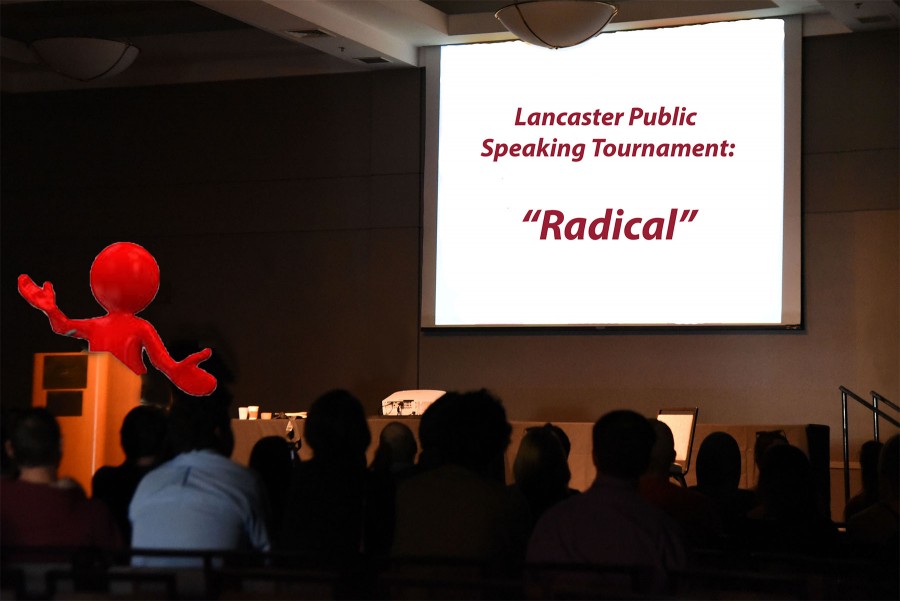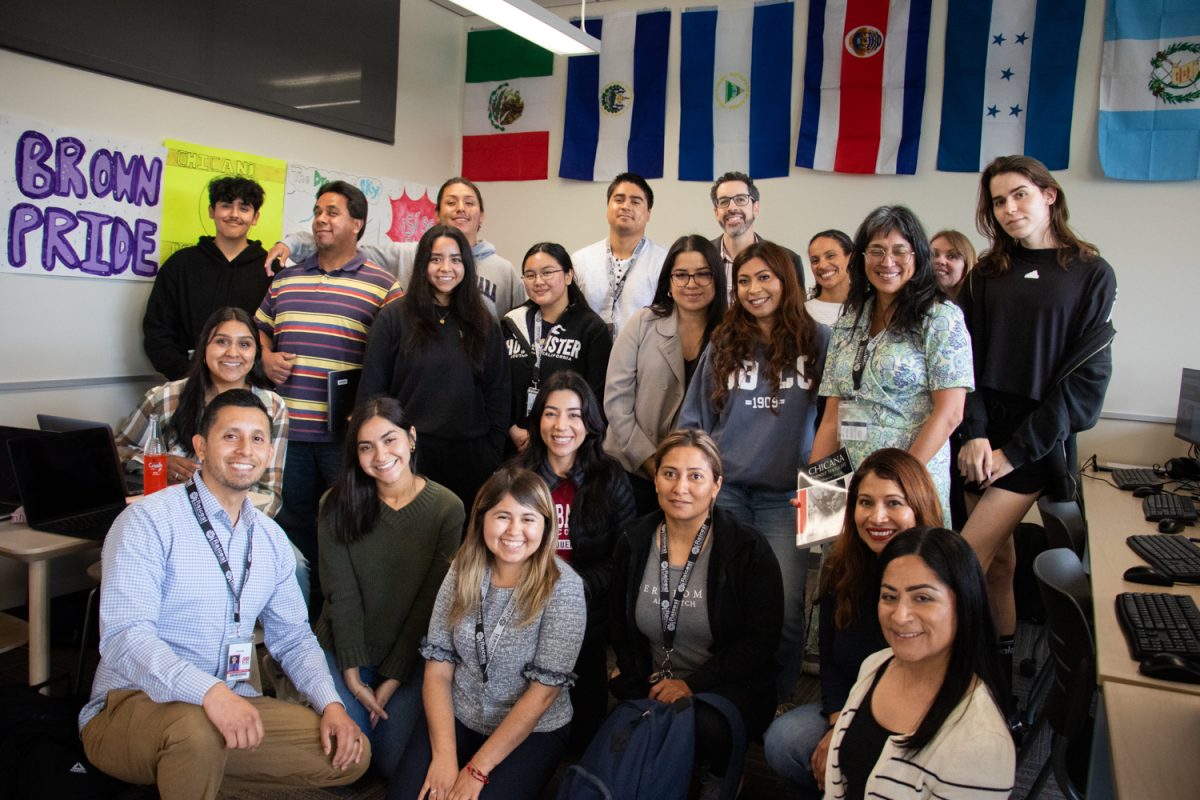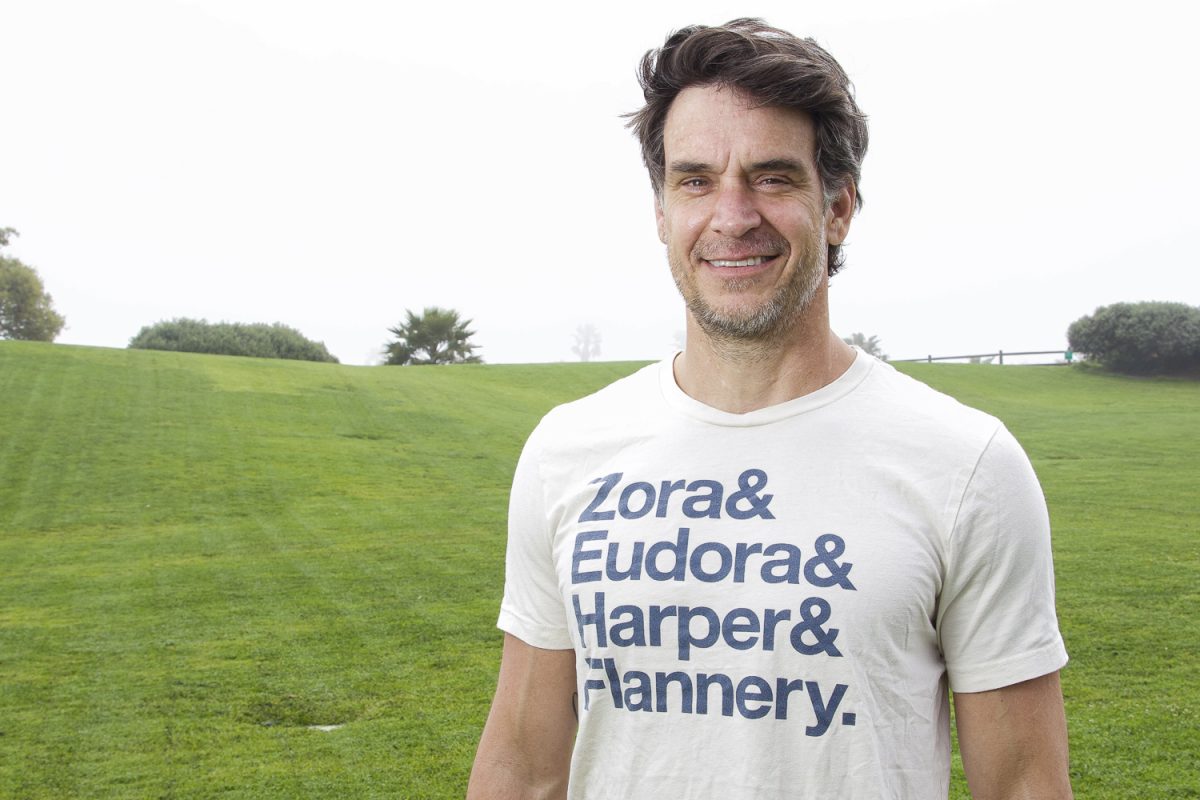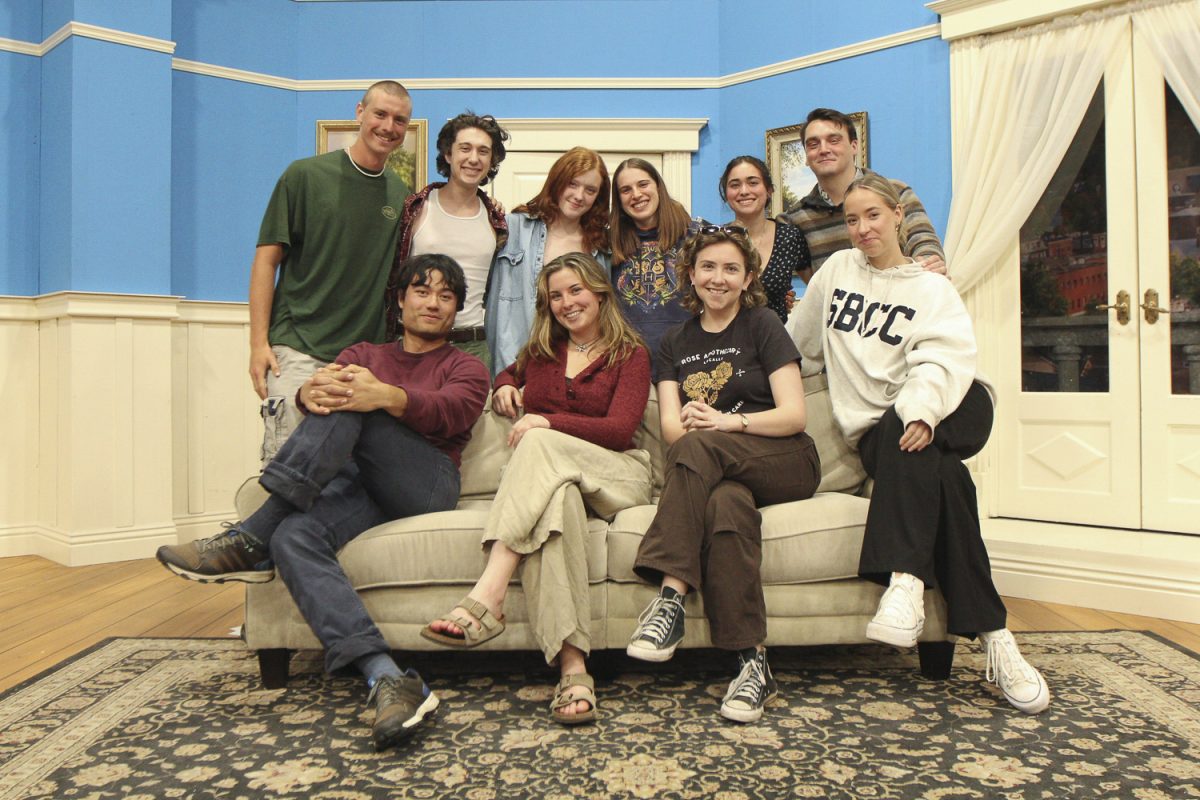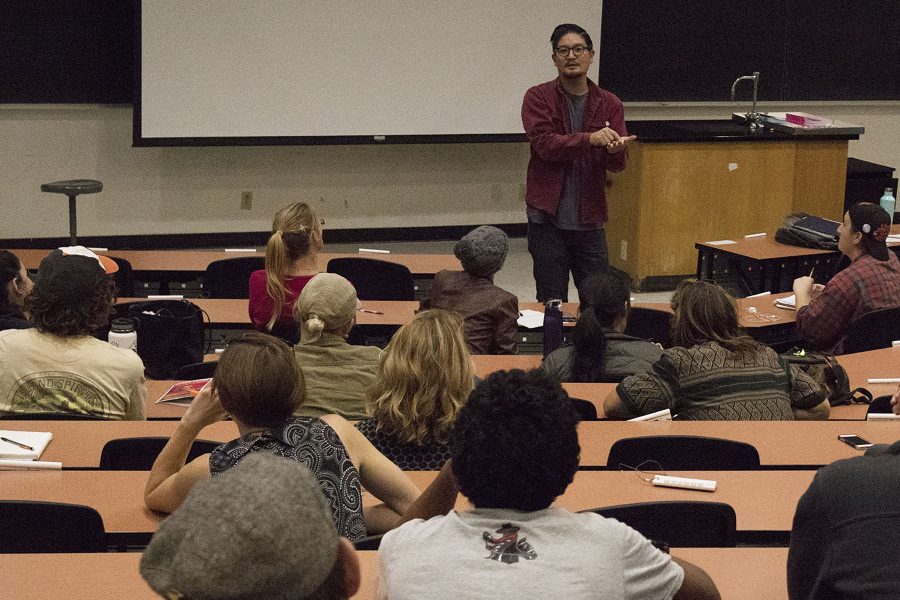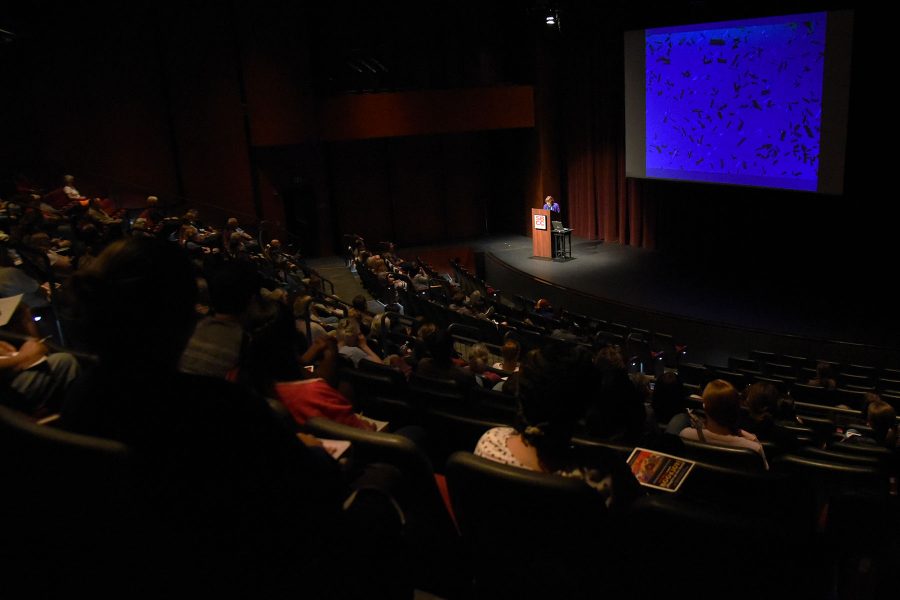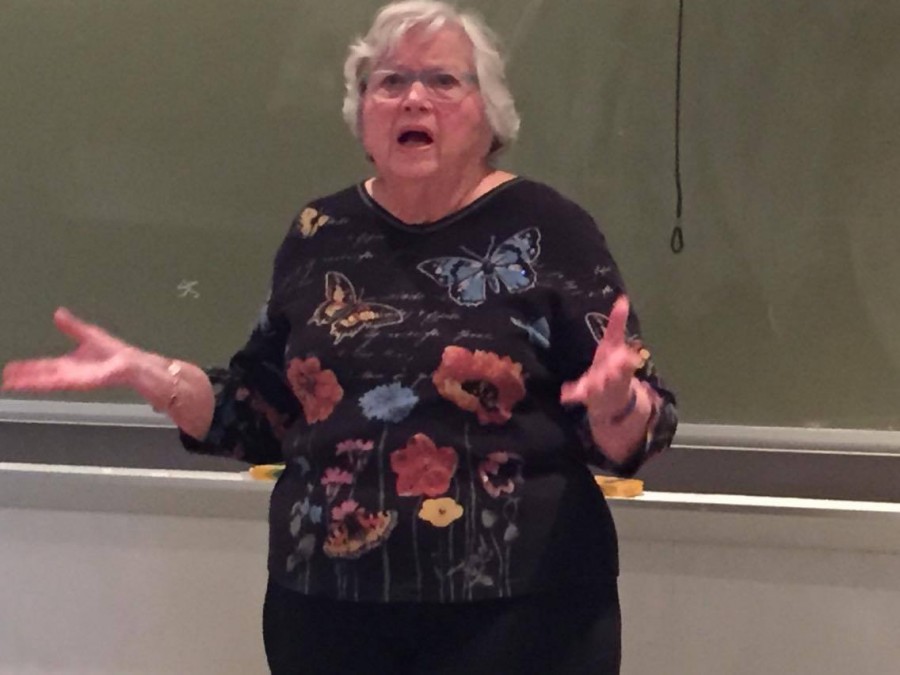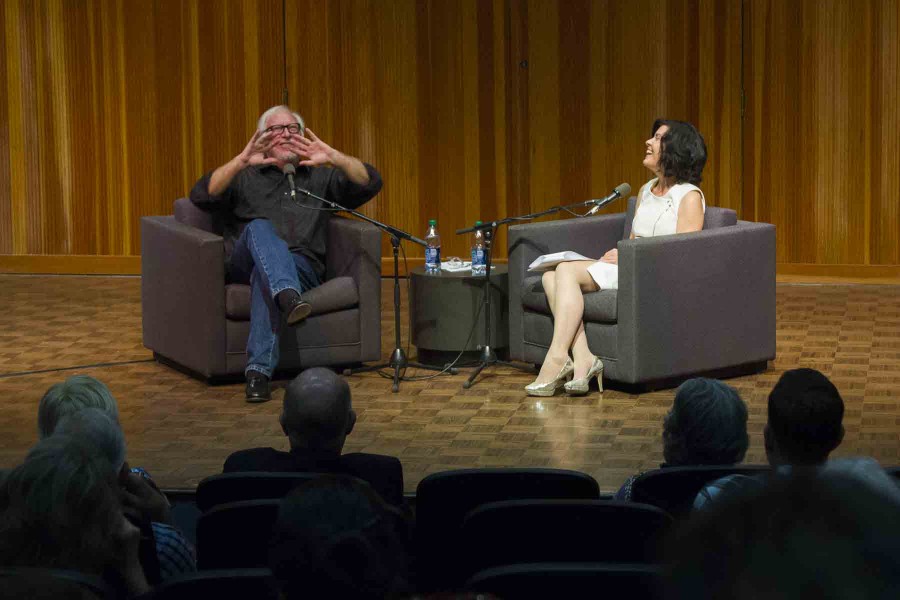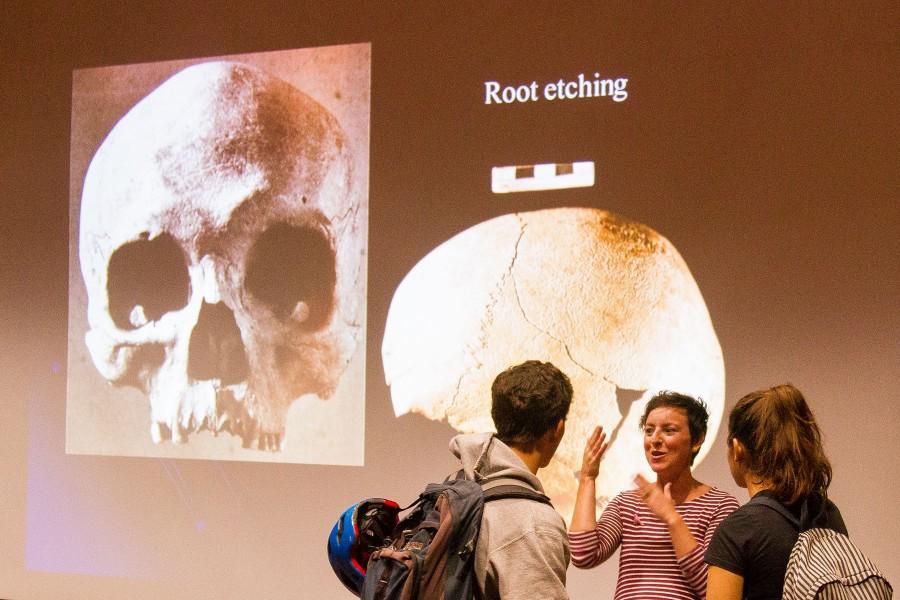Americans are living in a country that has gone through changes that have left the the nation shaken up, and some might argue, divided.
It is no coincidence that the theme ‘‘Change!’’ has been reoccuring as a main subject in various events all over campus this semester.
City College students presented a wide variety of interpretations of what ‘‘Change!’’ means to them at the 32nd Lancaster Public Speaking Tournament.
‘‘Like it or not, we are going through change in our country,’’ said Dr. Cameron Sublett, communication professor and tournament director.
A total of five students competed in public speaking at the tournament held Wednesday evening in the Fe Bland Forum. The event was sponsored by the Lancaster Fund, Union Bank and the SBCC Foundation.
Judges for the competition were Das Williams, Santa Barbara County first district representative, Gregg Hart, Santa Barbara City councilmember, Randy Weiss, corporate social responsibility officer for Union Bank, and last year’s tournament winner, Cosette Traynor.
The top five students that had made it through a series of elimination rounds competed one last time for a cash prize of $1,000. The topic choices were broad, from mental illness to sexual assault to America’s political system.
Corey Fiebiger, the winner of the big prize, delivered a speech on why we should curse more. The crowd laughed as she started the speech by loudly listing the seven curse words that comedian George Carlin said you could never mention on TV in his 1972 monologue.
Fiebiger chose the topic because it was funny and fascinating to research the different ways swearing could actually be beneficial. She presented studies supporting her thesis that swearing makes you more honest, intellectual and healthier.
‘‘So next time you hear someone say [these words], don’t judge them. Appreciate them,’’ Fiebiger said.
The topic quickly changed when Saturne Tchabong presented a speech questioning the importance of appearance in our society. She argued that how we value appearance today is unfair and unfavorable for people that don’t meet the standards.
‘‘We have to decide the truths for ourselves, and no longer judge people because of their appearance,’’ Tchabong said.
Psychology major Bridgette Burkhardt argued that there is a need to let go of the stigmas towards mental illness and the medications that come with them. She presented a personal story of surviving mental illness, and wanted others to speak up to encourage conversation and acceptance.
‘‘Know that you’re not alone, know that you don’t have to stay silent and know that you’re still alive,’’ Burkhardt said.
Burkhardt pointed out that it is often more socially acceptable to take medications for any physical disease, but people are quick to judge when the medications are ‘‘for the head.’’
Mikila Tuchscher told a heartfelt story on stage about victim blaming in sexual assault cases and how it can have devastating results on the victim. Victim blaming quickly shifts the focus away from the perpetrator.
‘‘I am not a victim, I am a survivor,’’ Tuchscher said. ‘‘Together we can help the victims of sexual assault become survivors too.’’
She argued that we need to stop asking victims of sexual assault what they were wearing, if they had been drinking or if they were ‘‘asking for it.’’
Overall, the event offered thought-provoking arguments on a wide variety of subjects that could spark interest and promote action for people to dedicate themselves to a cause they believe in.



